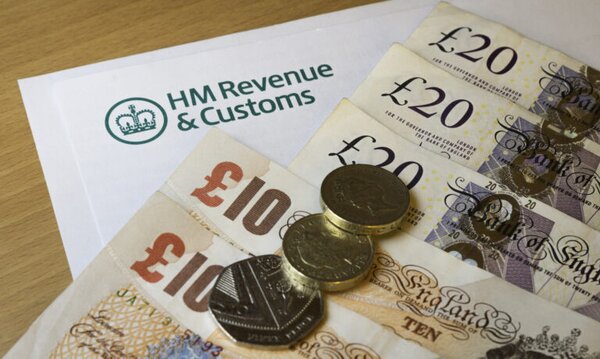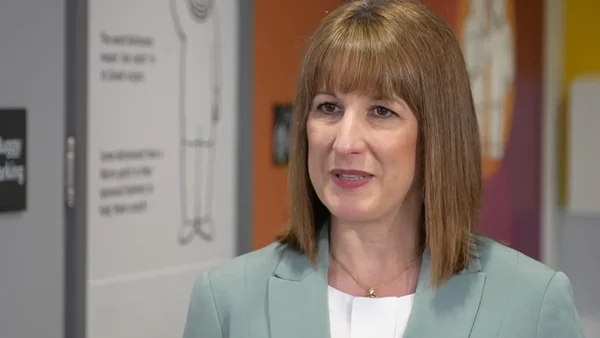Lets Break down
Did you know that 94% of UK businesses need to pay corporation tax? If you run a limited company, you’re almost certainly one of them, and understanding the corporation tax rate is crucial for financial planning. Understanding this tax isn’t just good practice – it’s essential for keeping your company legally compliant.
The basics are straightforward: companies pay tax on their profits before distributing dividends to shareholders. However, the details matter significantly when it comes to managing your tax bill effectively.
Let’s break down how corporation tax works in simple terms, so you can better plan your company finances and avoid any nasty surprises from HMRC.
How does corporation tax work?
Corporation tax is a direct tax on company profits, collected directly from businesses themselves rather than individuals. The current main rate stands at 25% for companies with profits over £250,000, while smaller businesses with profits under £50,000 benefit from a lower 19% rate.
Different industries may be subject to specialised tax regimes, such as the Patent Box Tax Regime for patented products or the Tonnage Tax regime for shipping operations.
For companies with profits between £50,000 and £250,000, a system called marginal relief creates a sliding scale between the two rates. The tax applies to all your company’s profits, including trading income and any investment gains.
In some cases, companies may also be subject to additional taxes, such as the Energy Profits Levy for oil and gas companies.
What makes corporation tax different from other taxes is that HMRC doesn’t send you a bill. Your company must calculate its own liability, make the payment, and then file a tax return accordingly.
The Diverted Profits Tax (DPT) is another consideration, particularly for multinational corporations, aimed at preventing profit shifting to lower-tax jurisdictions.

When do you need to pay your corporation tax?
Unlike personal tax, you must pay corporation tax before filing your Company Tax Return, which catches many new business owners by surprise. The standard deadline is 9 months and 1 day after your accounting period ends. For example, if your accounting year ends on March 31st, you need to pay by January 1st.
Larger companies with profits over £1.5 million have to pay in quarterly instalments rather than one annual payment. This helps HMRC collect tax more regularly from bigger businesses while spreading the payment burden.
Missing payment deadlines results in interest charges that start immediately. HMRC doesn’t send reminders, so it’s entirely your responsibility to pay on time through methods like online banking, direct debit, or even through a building society.
How are your taxable profits calculated for your corporation tax bill?
Your tax bill is based on annual profits, not your total income – an important distinction that can save you money. Taxable profit includes your trading profits, investment income, and any capital gains from selling business assets, minus allowable expenses.
The formula is simple: (Trading profits + Investment income + Capital gains) – Allowable expenses = Taxable profit. Small companies pay a lower rate of corporation tax at 19%, while larger ones pay 25%, with those in between receiving marginal relief.
If your company makes a profit, the profit thresholds are shared between all connected companies. This prevents businesses from splitting into smaller units just to benefit from lower rates.

What expenses can reduce your corporation tax bill?
The key to minimising your tax bill is understanding what qualifies as a business expense that you can deduct. These must be “wholly and exclusively” for business purposes, including day-to-day running costs like office rent, staff wages, business travel, and utilities.
Capital allowances let you deduct the cost of assets like computers, machinery, and company vehicles. These work differently from regular expenses and often spread the tax relief over several years, providing long-term benefits.
In some cases, if your company has incurred losses, you may be eligible for a tax refund by offsetting those losses against profits from other years.
Research and Development (R&D) tax reliefs can be especially valuable if your company develops new products or processes. Additionally, pension contributions made by your company for employees are tax-deductible, making them an efficient way to extract value from your business.
Capital Allowances and Tax Relief
Capital allowances offer a valuable form of tax relief for companies, allowing them to deduct the cost of certain capital assets from their taxable profits. In the UK, capital allowances can be claimed on qualifying expenditures such as equipment, machinery, and property. One of the most beneficial types of capital allowance is the annual investment allowance (AIA), which permits companies to claim a 100% deduction on qualifying capital expenditures up to a specified limit.
Claiming capital allowances can significantly reduce a company’s corporation tax liability and improve cash flow. However, it’s essential to understand the rules and ensure the correct amount is claimed to avoid potential penalties from HMRC. By strategically planning capital expenditures and taking full advantage of available allowances, companies can optimise their tax position and reinvest savings into their business.

How is corporation tax different for small vs large companies?
Small companies enjoy several advantages in the corporation tax system, including lower corporation tax rates for profits under £50,000 and simpler reporting requirements. They also benefit from annual payments rather than the quarterly instalments required of larger companies.
For large companies with profits subject to higher tax rates, tax management becomes more complex. They must estimate their annual profit and pay tax in quarterly instalments, typically requiring more sophisticated accounting systems to track their tax liabilities accurately.
Medium-sised companies with profits between £50,000 and £250,000 face the most complex calculations due to marginal relief. This creates a gradually increasing effective tax rate that requires careful planning and potentially professional advice.
What records do you need to keep for corporation tax?
Good record-keeping of your company accounts is essential for managing your corporation tax, with HMRC requiring you to keep records for at least 6 years. You’ll need to maintain detailed accounts of all income and expenses, including invoices, receipts, bank statements, and any loan agreements.
For capital assets, keep records of purchase dates, costs, and any improvements made during different accounting periods. These details are crucial for claiming capital allowances correctly and maximising your tax efficiency.
If you claim special tax reliefs like R&D credits, you’ll need additional documentation to support these claims. Fortunately, digital record-keeping has made this process easier, with many businesses using accounting software to track finances and calculate tax liabilities automatically.

How to manage your corporation tax efficiently
To stay compliant with Corporation Tax rules, it’s important to maintain clear and accurate financial records throughout the accounting year. Set reminders for key deadlines, such as filing your Company Tax Return and making payment within nine months and one day after your accounting period ends to avoid late penalties.
Consider using accounting software or working with a professional accountant to help with calculating profits, tracking allowable expenses, and ensuring all necessary information is submitted correctly. Regularly reviewing your tax position can help identify any reliefs or deductions you may be entitled to claim.
Planning ahead and staying organised throughout the year can prevent last-minute stress and reduce the risk of penalties or interest charges.
Final thoughts on corporation tax
Understanding corporate taxes isn’t just about compliance – it’s about making informed business decisions that can save you money. Many business owners find that working with an accountant or tax advisor pays for itself through the tax savings they identify.
Regular reviews of your tax position throughout the year will help you spot opportunities and avoid surprises within the tax system. In my experience working with small businesses, those who integrate tax planning into their monthly financial reviews consistently pay less tax than those who treat it as an annual chore.
With the right approach to corporation tax, you can ensure your business remains compliant while never paying more than your fair share. That leaves more money to reinvest in growing your company and achieving your business goals.











